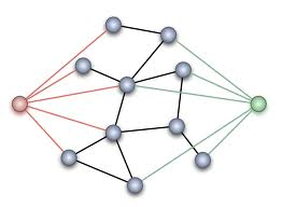 You may be interested to learn that our state environmental agency, the Texas Commission on Environmental Quality (TCEQ), offers grants that help (primarily businesses) fund projects to improve air quality. Perhaps you may be surprised to learn that renewable energy projects and electric vehicle purchases are eligible for some of these grant opportunities. These grants are found under the umbrella of the Texas Emissions Reduction Plan (TERP). TERP programs are typically focused on natural gas and diesel vehicles along with general air emissions control technologies. For example, the Clean Transportation Triangle and Texas Natural Gas Vehicle Program offer funds for development and deployment of natural gas fueling stations and vehicles in the state. Other programs include Emissions Reduction Incentives Grants for upgrade/replacement of diesel engines/vehicles in certain areas of the state.
You may be interested to learn that our state environmental agency, the Texas Commission on Environmental Quality (TCEQ), offers grants that help (primarily businesses) fund projects to improve air quality. Perhaps you may be surprised to learn that renewable energy projects and electric vehicle purchases are eligible for some of these grant opportunities. These grants are found under the umbrella of the Texas Emissions Reduction Plan (TERP). TERP programs are typically focused on natural gas and diesel vehicles along with general air emissions control technologies. For example, the Clean Transportation Triangle and Texas Natural Gas Vehicle Program offer funds for development and deployment of natural gas fueling stations and vehicles in the state. Other programs include Emissions Reduction Incentives Grants for upgrade/replacement of diesel engines/vehicles in certain areas of the state.
Among all the fossil-fuel related projects, renewables can get a piece of the action through the New Technology Implementation Grant (NTIG) program. General air emissions control technologies and “cleantech” for fossil fuels are also eligible for these funds. However, electricity storage technology projects tied to renewable energy generation are eligible for these grants, too. In the past few years, thermal and compressed air energy storage projects for wind farms have received funding through NTIG.
Electric, as well as natural gas-fueled, vehicles can be subsidized up to $2,500 through the Light-duty Purchase, or Lease Incentives (LDPLI) program. According to the LDPLI program guidance, electric vehicles must be a plug-in with four wheels, a top speed of at least 55 mph, and an unloaded weight of no more than 8,500 pounds and a minimum battery capacity of four kilowatt-hours. Also, the vehicle must be on the TCEQ’s list. There is currently no list posted on the web. A new list is due out later this spring.
Additionally, there is a Clean Fleets program to support conversion of commercial fleets to alternative fuels/hybrid vehicles. However, that program had its last grant application period end in august of 2012 and there have been no further announcements of further funding availability.
Seems there are some progressive elements lurking in our state government!

 This month’s Clean TX Foundation Power Lunch featured Dr. Michael Webber of UT-Austin speaking on the interdependence of our energy, water and food supplies. The over-arching message is that currently our energy production depends heavily on water supply, while treating and distributing water consumes much of our energy. At the same time, food production and distribution currently consumes a big fraction of our energy and water. Here are a few further points I took away to ponder:
This month’s Clean TX Foundation Power Lunch featured Dr. Michael Webber of UT-Austin speaking on the interdependence of our energy, water and food supplies. The over-arching message is that currently our energy production depends heavily on water supply, while treating and distributing water consumes much of our energy. At the same time, food production and distribution currently consumes a big fraction of our energy and water. Here are a few further points I took away to ponder:
Recent Comments